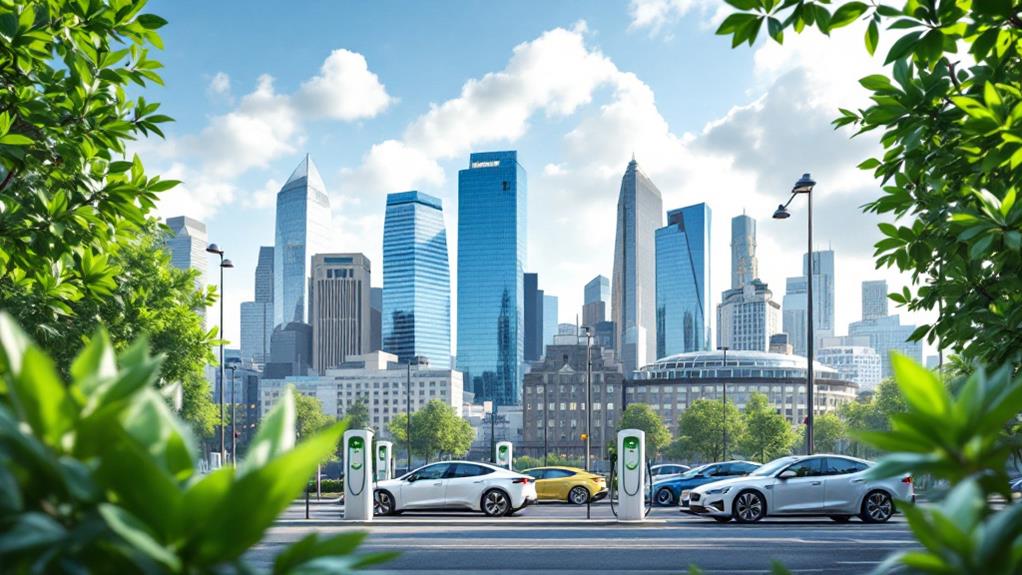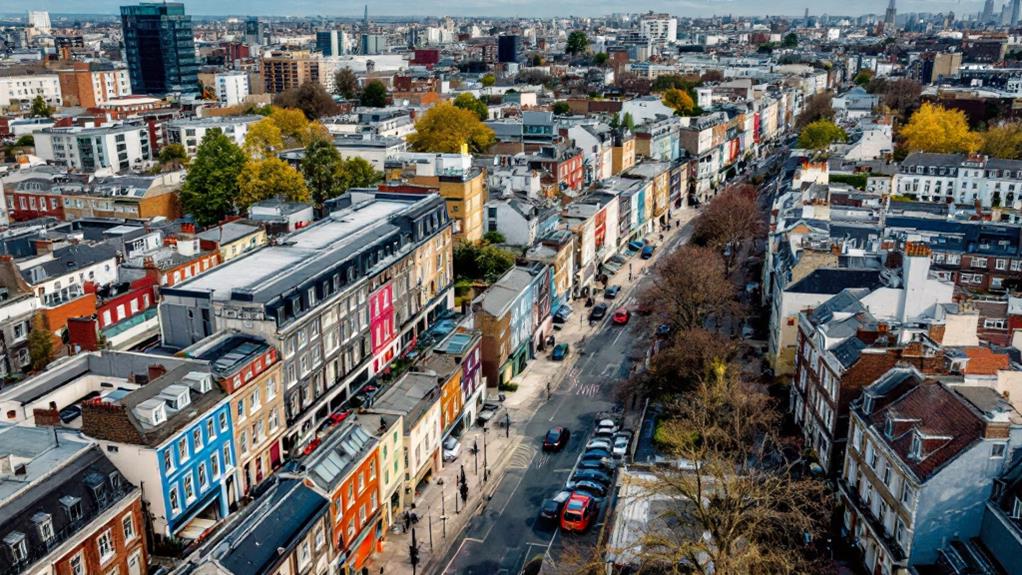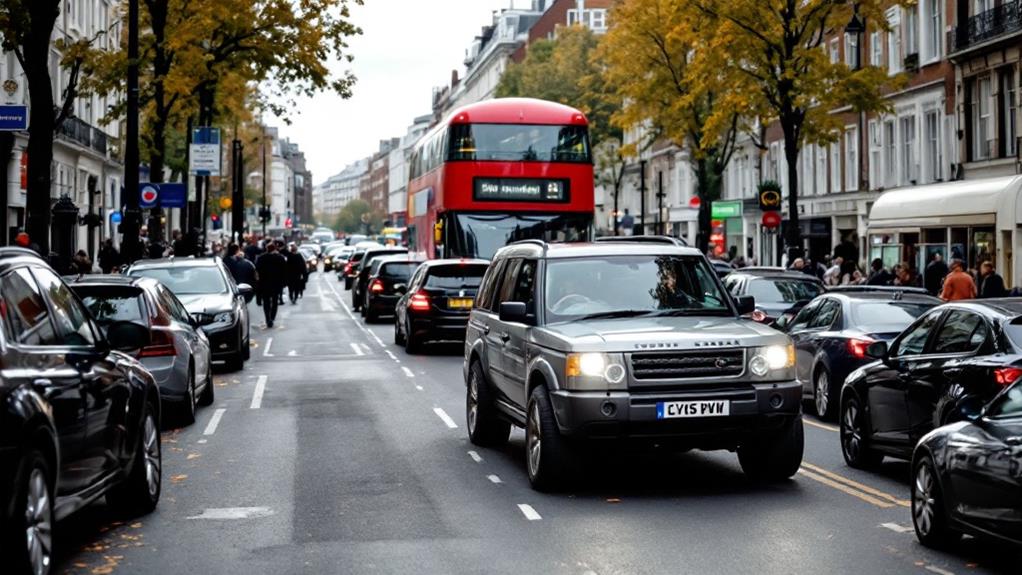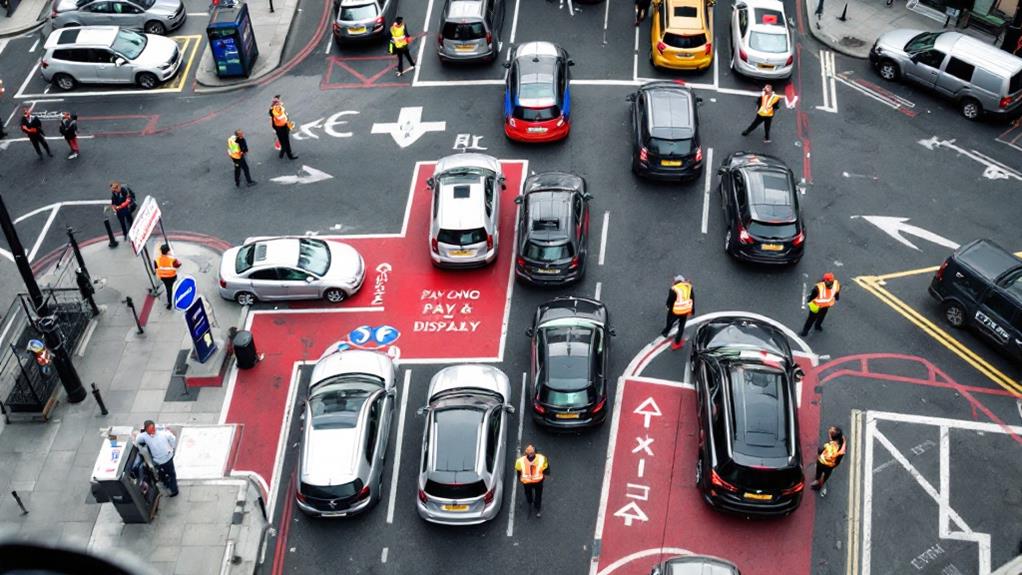The High Cost of Public Parking Garages in London
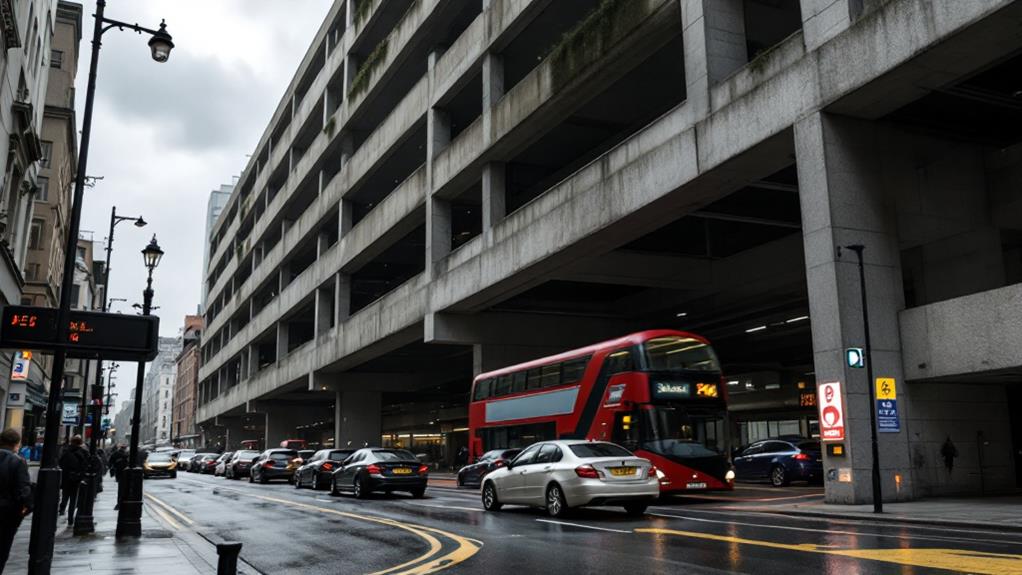
Public parking garages in London come with a hefty price tag. You'll find that constructing a single space can cost up to £40,000, with annual operating expenses reaching £1,500. These high costs translate to expensive parking fees for you and other residents. Local businesses suffer as customers avoid steep parking charges, while the environment takes a hit from increased vehicle usage. You might consider alternatives like peer-to-peer parking or car-sharing services to save money and reduce your carbon footprint. The economic burden on Londoners is significant, with some paying over £3,600 annually for parking. Exploring this issue further reveals surprising impacts on urban life and sustainability.
Construction and Maintenance Expenses
In recent years, the construction and maintenance of public parking garages in London have become increasingly costly undertakings. You'll find that building a single parking space in these structures can set you back up to £40,000, making it a substantial infrastructure investment. This hefty price tag stems from the need for extensive structural reinforcement and security measures to withstand London's dense urban environment.
But the expenses don't stop there. Once the parking garage is up and running, you're looking at annual operating costs of £1,000 to £1,500 per space. These ongoing maintenance expenses contribute considerably to the overall financial burden of providing public parking in the city.
The combination of high upfront construction costs and continuous operating expenses creates a challenging situation for those responsible for parking infrastructure. It's become increasingly difficult to offer affordable parking options for both residents and visitors. As a result, you'll notice that the cost of parking in London often reflects these substantial investments, making it a costly affair for drivers in the capital.
Impact on Local Businesses
Cash registers across London are feeling the pinch as high parking fees at public garages take their toll on local businesses. You'll notice that shops and restaurants near these expensive parking spaces are struggling to attract customers, who are often deterred by the steep price of parking. As a result, you might see fewer people browsing stores or dining out in these areas, opting instead for locations with more affordable parking options.
Local businesses are forced to make tough decisions to stay afloat. You'll find some raising their prices to offset the impact of parking costs, potentially making them less competitive. Others may reduce their operating hours or struggle to maintain a full staff, as employees find it challenging to commute due to the high parking fees.
The financial strain is particularly evident for small and medium-sized enterprises. You'll observe that these businesses are fighting an uphill battle to remain profitable and sustainable in the face of exorbitant parking rates. As a customer, you might find yourself reconsidering your shopping habits, potentially favoring areas with more reasonable parking fees or opting for online alternatives altogether.
Environmental Consequences

While the economic impact of public parking garages is significant, their environmental footprint is equally concerning. You'll find that these structures consume crucial urban land that could be rearranged into green spaces, pedestrian plazas, or bike lanes. By promoting private vehicle usage, parking garages deter you from adopting more sustainable transportation options like walking, cycling, or using public transit.
The production and maintenance of these facilities generate substantial greenhouse gas emissions, contributing to London's overall carbon footprint. You might not realize that the impermeable surfaces of parking structures exacerbate urban heat island effects and disrupt natural water drainage, negatively impacting local ecosystems.
As you negotiate the city, you'll notice that the air quality around parking garages is often poor. Vehicles circulating in and out of these spaces generate pollution that can pose health risks to nearby residents and workers. By continuing to prioritize parking facilities, you're inadvertently supporting a system that hinders London's progress towards becoming a more environmentally-friendly and sustainable city. It's clear that the environmental consequences of public parking garages extend far beyond their physical footprint.
Alternative Parking Solutions
As you search for more affordable and sustainable parking options in London, several alternatives to public parking garages have emerged. One innovative solution is peer-to-peer parking, where residents list their unused driveways and parking spaces for rent. This option often provides a cheaper alternative to public garages, maximizing the use of existing spaces and lowering the need for new construction.
Off-street parking facilities operated by private companies can sometimes offer more competitive rates per square foot compared to public options. These facilities may include garages and lots strategically located throughout the city.
You can also take advantage of flexible parking solutions through mobile apps that allow you to reserve and pay for spots in advance. This approach helps you avoid high on-street parking costs and secures a place to park before you arrive at your destination.
Consider embracing shared mobility services like car-sharing and ride-hailing to reduce your need for personal vehicle ownership and parking. These options can dramatically lower your transportation costs while minimizing your environmental impact in London's thriving urban landscape.
Public Transportation Disincentives
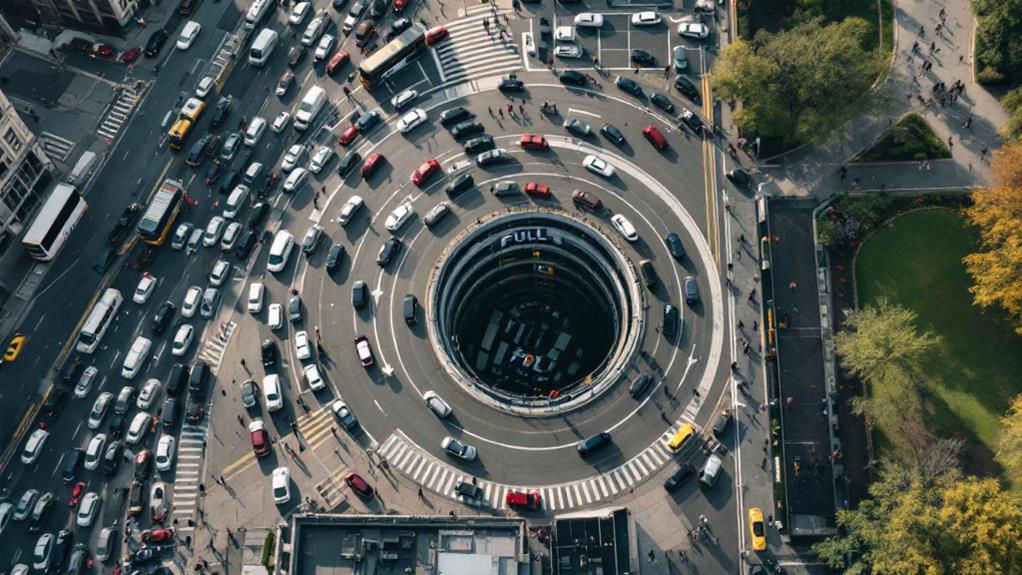
Despite efforts to promote sustainable transportation, the high cost of public parking garages in London inadvertently creates disincentives for using public transit. You'll find that the average cost per space in these garages ranges from £20,000 to £50,000, making it more affordable for you to own and use a private car rather than relying on public transportation.
The significant upfront capital required to construct parking garages drives up costs, which are ultimately passed on to you through higher parking fees. This financial burden diverts resources that could be invested in improving public transportation infrastructure and services. As a result, you're often left with a less-than-ideal public transit system while facing expensive parking options.
Excessive public parking provisions undermine efforts to encourage sustainable transportation modes. When you're presented with readily available parking, you're more likely to choose operating over alternative options. This cycle perpetuates the reliance on private vehicles and further disincentivizes the use of public transportation. To break this pattern, urban planners and policymakers must reconsider the role of public parking garages and their impact on transportation choices in London.
Economic Burden on Residents
The economic burden of expensive public parking garages in London weighs heavily on residents' wallets. If you're living in Westminster, you'll face the highest parking costs in the UK, shelling out an eye-watering £3,684 annually for a 4-day work week. That's a staggering amount, especially when compared to other cities like Birmingham, where you'd pay only £844 per year.
Even within London, the disparity is stark. In Islington, you'll still pay £3,007 annually, nearly four times more than Birmingham. These exorbitant rates aren't limited to on-street parking; public garages often charge similarly high fees. The situation is so dire that many Londoners are turning to alternative solutions, such as renting private driveways or garages to keep their parking expenses down.
The impact on your finances is significant, with parking costs eating up a considerable percentage of your income. This financial strain is particularly challenging as household expenses continue to rise. For many residents, the high cost of parking in London is becoming an unsustainable burden, forcing them to reconsider their transportation choices or seek creative solutions to manage their expenses.
Traffic Congestion Effects
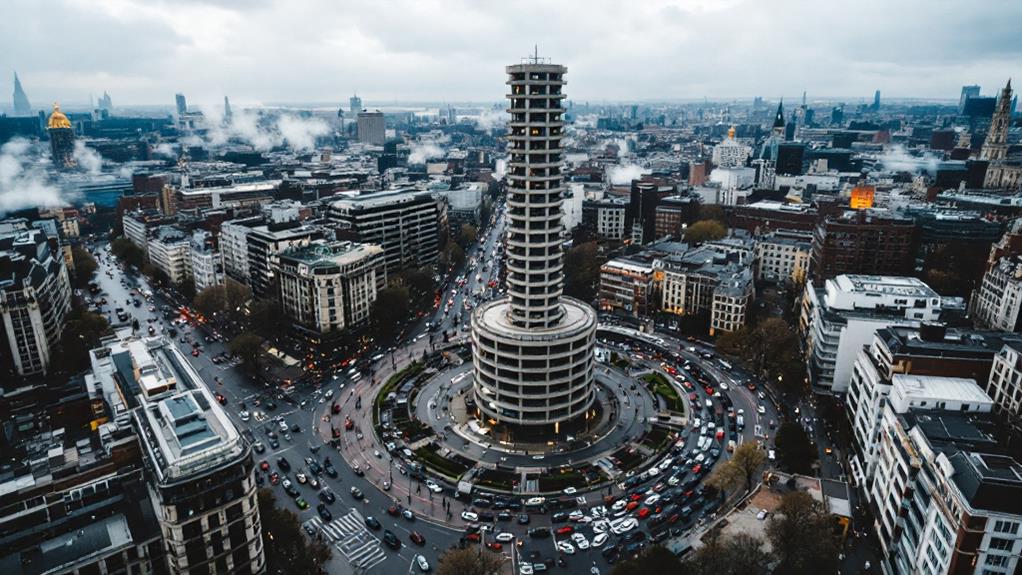
Nearly one-third of central London's traffic is caused by drivers circling the block in search of parking spaces. This seemingly simple act of finding a place to park your car contributes greatly to the city's traffic congestion, increased travel times, and air pollution. As you navigate through London's busy streets, you're not just battling other commuters, but also competing for limited parking spots.
The high costs of constructing and operating public parking garages in London only exacerbate this issue. These facilities encourage more drivers to bring their cars into the city center, further clogging the streets. Despite the congestion charge, the number of parking spaces available still plays a vital role in traffic flow and congestion levels.
To address this problem, London needs to rethink its parking strategies. Reducing the oversupply of parking and implementing more efficient management systems could help alleviate some of the traffic congestion challenges. By carefully considering parking pricing and availability, you'll likely see improvements in traffic flow and reduced pollution levels. It's clear that the relationship between parking and congestion is complex, but addressing it is essential for a more efficient and livable London.
Future of Urban Parking
As urban centers like London grapple with the astronomical costs of building and maintaining public parking garages, innovative solutions are emerging to reshape the future of urban parking. You'll see a shift towards data-driven management and smart technologies that optimize the use of existing Parking Lots. Demand-responsive pricing will become more common, adjusting rates based on real-time occupancy to guarantee efficient use of available spaces.
You can expect cities to reduce or eliminate minimum parking requirements for new developments, lowering housing and commercial space costs while promoting alternative transportation modes. Parking benefit districts will gain popularity, directing parking revenue towards local improvements and making metered parking more palatable to residents and businesses.
The future of urban parking will likely involve a combination of strategies aimed at reducing reliance on expensive public parking infrastructure. You'll witness increased emphasis on transportation demand management and shared parking initiatives. As cities aim for sustainability, you'll see incentives designed to shift travel behavior towards more eco-friendly options. These approaches will help address the high costs associated with traditional parking garages while creating more livable, efficient urban environments.
